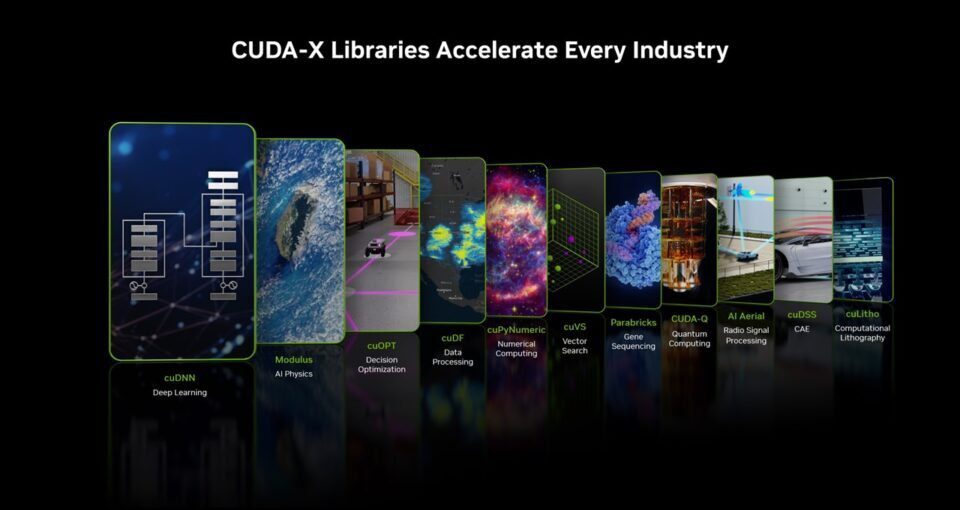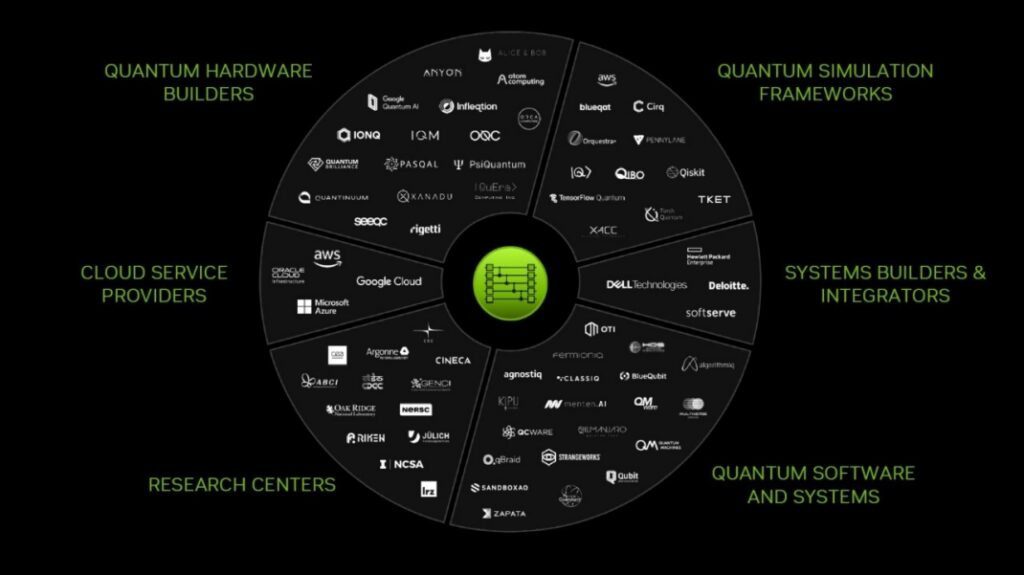Reduce the Noise: NVIDIA CUDA-Q Makes It Possible to Show Off Industry-First Quantum Computing Using Logical Qubits.

Although noise is a major obstacle preventing today’s quantum devices from being used effectively, quantum computing has the potential to revolutionize a variety of sectors, including drug development and logistics. Today’s qubits can only execute hundreds of operations before quantum calculations irreversibly degrade due to these disruptions brought forth by faulty hardware and environmental interactions.
Despite their seeming inevitability, so-called logical qubits collections of tens, hundreds, or even thousands of real physical qubits can address noise in quantum hardware by correcting mistakes caused by noise. Quantum hardware manufacturer Infleqtion today presented a ground-breaking study that uses the NVIDIA CUDA-Q platform to both design and demonstrate an experiment using two logical qubits, the holy grail of quantum computing.
The so-called single-impurity Anderson model, a high-accuracy method required for several significant materials science applications, was shown on a limited scale using these logical qubits.
This is the first time a quantum algorithm from materials science has been shown on logical qubits. The construction of a single logical qubit is quite difficult. By accurately modelling its quantum computer using CUDA-Q’s special GPU-accelerated simulation capabilities, Infleqtion was able to accomplish this accomplishment.
Infleqtion may then utilize NVIDIA CUDA-Q to coordinate the experiment utilising the real physical qubits within its Sqale neutral atom quantum processor after developing and testing the complete experiment within CUDA-Q’s simulators with very minor modifications.
The foundation for quantum computing’s transition to large-scale, error-corrected systems is laid forth by this study.
Large systems of logical qubits and today’s quantum devices still face several scaling obstacles that can only be overcome by combining quantum hardware with AI supercomputers to create accelerated quantum supercomputers.
In order to facilitate the groundbreaking research required to realize accelerated quantum supercomputing, NVIDIA is still collaborating with partners such as Infleqtion.
NVIDIA Quantum
Accelerating scientific research in the future.
Summary
What Is Accelerated Quantum Supercomputing?
A new computer paradigm that might have an effect on many sectors is implemented using quantum processing units, or QPUs. Integrating QPUs with cutting-edge AI supercomputers is necessary to transform them into practical quantum computers. To create such practical, accelerated quantum supercomputers, NVIDIA is collaborating with QPU developers.
Solutions
Accelerating Quantum Computing

NVIDIA Quantum Cloud
Through Quantum Cloud APIs that can execute CUDA-Q projects on a variety of NVIDIA GPU systems, NVIDIA Quantum Cloud gives users access to the most potent quantum computing platform in the world.
NVIDIA CUDA-Q
Quantum-accelerated applications will be hybrid quantum and classical in nature rather than operating solely on a quantum resource. A development platform that offers high performance, works with current applications and programming paradigms, and is recognizable and approachable by domain scientists is required to go from the creation of algorithms by quantum physicists to the development of applications by domain scientists.
NVIDIA CUDA-Q is a first-of-its-kind platform for hybrid quantum-classical computers that allows QPUs, quantum emulation, GPUs, and CPUs to be integrated and programmed in a single system using a unified programming style. Performance-driven and open-source, CUDA-Q offers a high-level programming language for creating and executing hybrid quantum-classical applications.
NVIDIA cuQuantum
A collection of low-level libraries called NVIDIA cuQuantum is used to speed up the simulation of quantum circuits. Developers creating circuit modelling frameworks are the main users of cuQuantum, which speeds up programs like PennyLane, Qiskit, and Cirq.
CuQuantum provides multi-GPU accelerated state vector (cuStateVec) and tensor network (cuTensorNet) circuit simulation methods.
Leading community frameworks that have been accelerated by cuQuantum and tailored for the NVIDIA platform make up the cuQuantum Appliance, a Docker container.
The NVIDIA NGC catalogue offers the NVIDIA cuQuantum Appliance.
NVIDIA DGX Quantum
Developed in collaboration with Quantum Machines, NVIDIA DGX Quantum is a reference architecture and integrated system for quantum-classical computing.
By combining the Quantum Machines OPX Control System with NVIDIA Grace Hopper Superchips, DGX Quantum provides real-time, GPU-accelerated quantum error correction, calibration, and control with sub microsecond latency between the quantum control system and the GPU.
From hundreds to thousands of qubits, from a single GPU to an accelerated quantum supercomputer, DGX Quantum scalable to meet both quantum and conventional processing needs. It is QPU-agnostic.
NVIDIA cuPQC
It is therefore very crucial for organizations to switch to algorithms that can survive a quantum computing assault in order to guarantee the security and authenticity of the world’s sensitive data. Post-quantum cryptography (PQC) is the name of this new quantum-safe encryption.
NVIDIA cuPQC advances data security against quantum computing threats and facilitates cryptography research by offering safe and quick implementations of the most popular PQC algorithms.
Resources
Simulation of the Next Generation
The key to advancing quantum hardware applications towards large-scale, error-corrected systems will be accelerated simulations.
Enhanced Quantum Supercomputing Speed
To find practical answers to issues, QPUs must collaborate with AI supercomputers.
AI for Quantum
AI advancements are speeding up the path to practical quantum computing. NVIDIA is at the forefront of using AI in quantum computing research, from developing algorithms to controlling hardware.
NVIDIA CUDA-Q Academic
Through the CUDA-Q software development platform, NVIDIA is collaborating with academic institutions to create educational resources aimed at developing a workforce prepared for the quantum era. With self-paced, online courses that include interactive coding assignments and movies, NVIDIA CUDA-Q Academic provides instruction for researchers and college students alike. In order to operate the accelerated quantum supercomputers that will execute practical applications, students acquire the necessary skills.
NVIDIA Quantum Ecosystem
The whole quantum ecosystem and some of the most significant current studies are made possible by NVIDIA Quantum. It are pleased to assist other organizations in developing and utilising quantum, from Fortune 500 firms to university labs and supercomputing centres, and from startups in quantum computing to some of the biggest businesses globally.



